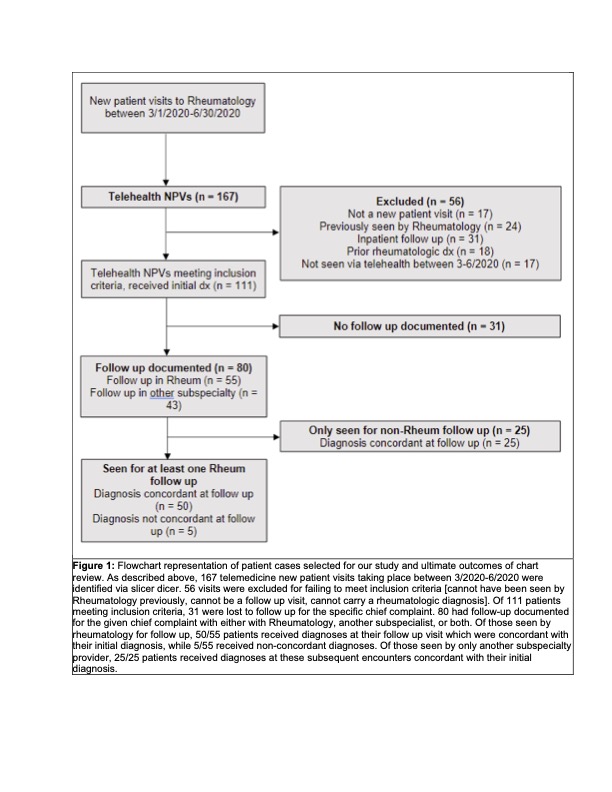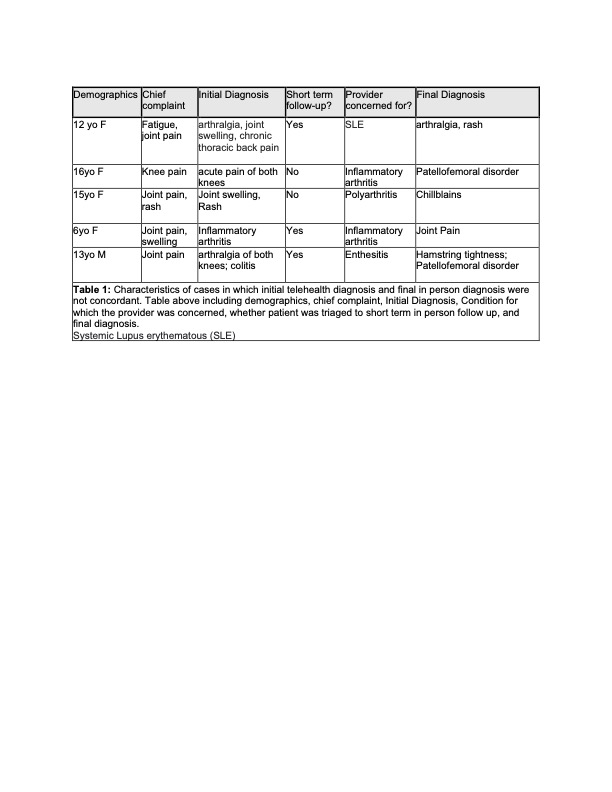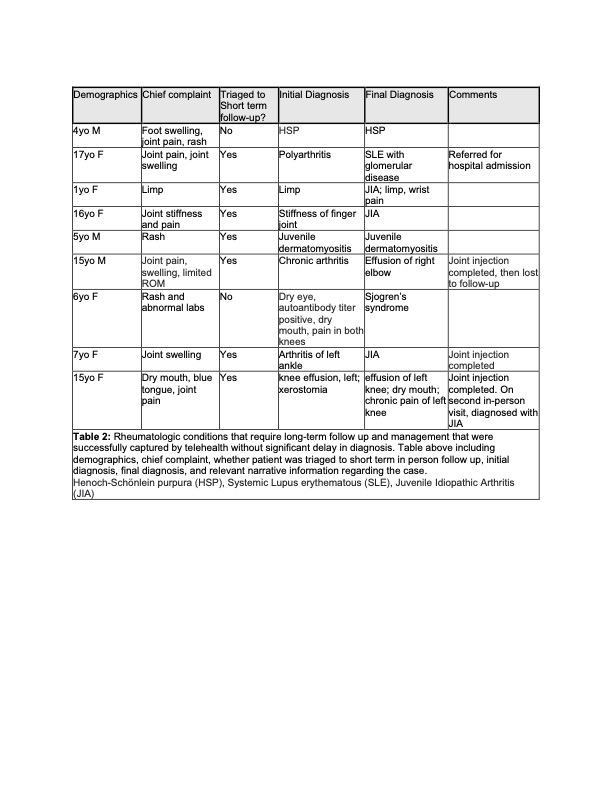Session Information
Session Type: Poster Session C
Session Time: 10:30AM-12:30PM
Background/Purpose: In early 2020, much of the country’s pediatric rheumatology practice shifted to a telehealth model secondary to the SARS-CoV-2 pandemic. During this discrete period, new patient evaluations were performed using video visits. Our objective was to assess the diagnostic concordance between video and in-person evaluations.
Methods: We performed a retrospective cohort study of patients seen for a new patient pediatric rheumatology video evaluation from March 1 to June 30, 2020 at a tertiary academic center. Patients met inclusion criteria if they: 1) were < 21 years old, 2) had not been seen by rheumatology previously, and 3) did not carry a rheumatologic diagnosis. Data extraction included all encounters through May 2024. All data were abstracted by 2 reviewers and adjudicated by a 3rd as needed. The primary outcome was concordance between initial video visit diagnosis and diagnosis received at in person follow up visit with rheumatology.
Results: 167 patients were evaluated during the study period of whom 111 met inclusion criteria. Of these, 72% (n = 80) had a follow up encounter in the system: 69% of those (n = 55) followed up in Rheumatology (Figure 1). 91% (n = 50) of video visit diagnoses were concordant with in-person diagnosis by Rheumatology. For each of the 5 patients with non-concordant diagnoses, there was a high suspicion of inflammatory arthritis during the video visit, but each was diagnosed with a more benign, non-rheumatologic cause of pain after in-person assessment (Table 1). There were no unplanned ED visits or hospital admissions following video visits. Significant, chronic rheumatologic conditions were successfully evaluated via video visit and later confirmed in-person (Table 2). Providers were also able to make more benign diagnoses (n) via telehealth including growing pains (2), extremity color change (4), Periodic Fever Syndrome (11), Amplified Musculoskeletal Pain Syndrome (14), and benign positive ANA (13). 25 patients followed up with providers outside of rheumatology within the hospital system for their presenting symptoms. Diagnoses made by other providers were found to be consistent with the rheumatology video visit in all cases.
Conclusion: In pediatric rheumatology new patient evaluations, diagnostic concordance between initial video visits and subsequent in person evaluations was high. Providers identified significant rheumatologic conditions accurately without delays in diagnosis or interval disease progression. In cases of diagnostic discordance, the final diagnosis was less concerning in all cases. These data suggest that video visits are a safe and effective way to initiate pediatric rheumatology care and improve access.
To cite this abstract in AMA style:
Aisenberg L, Rasooly I, Weiss P, Burnham J, Costello A. Evaluation of Diagnostic Concordance Between Telehealth Encounters and In-Person Follow-up Assessments in Pediatric Rheumatology [abstract]. Arthritis Rheumatol. 2024; 76 (suppl 9). https://acrabstracts.org/abstract/evaluation-of-diagnostic-concordance-between-telehealth-encounters-and-in-person-follow-up-assessments-in-pediatric-rheumatology/. Accessed .« Back to ACR Convergence 2024
ACR Meeting Abstracts - https://acrabstracts.org/abstract/evaluation-of-diagnostic-concordance-between-telehealth-encounters-and-in-person-follow-up-assessments-in-pediatric-rheumatology/



